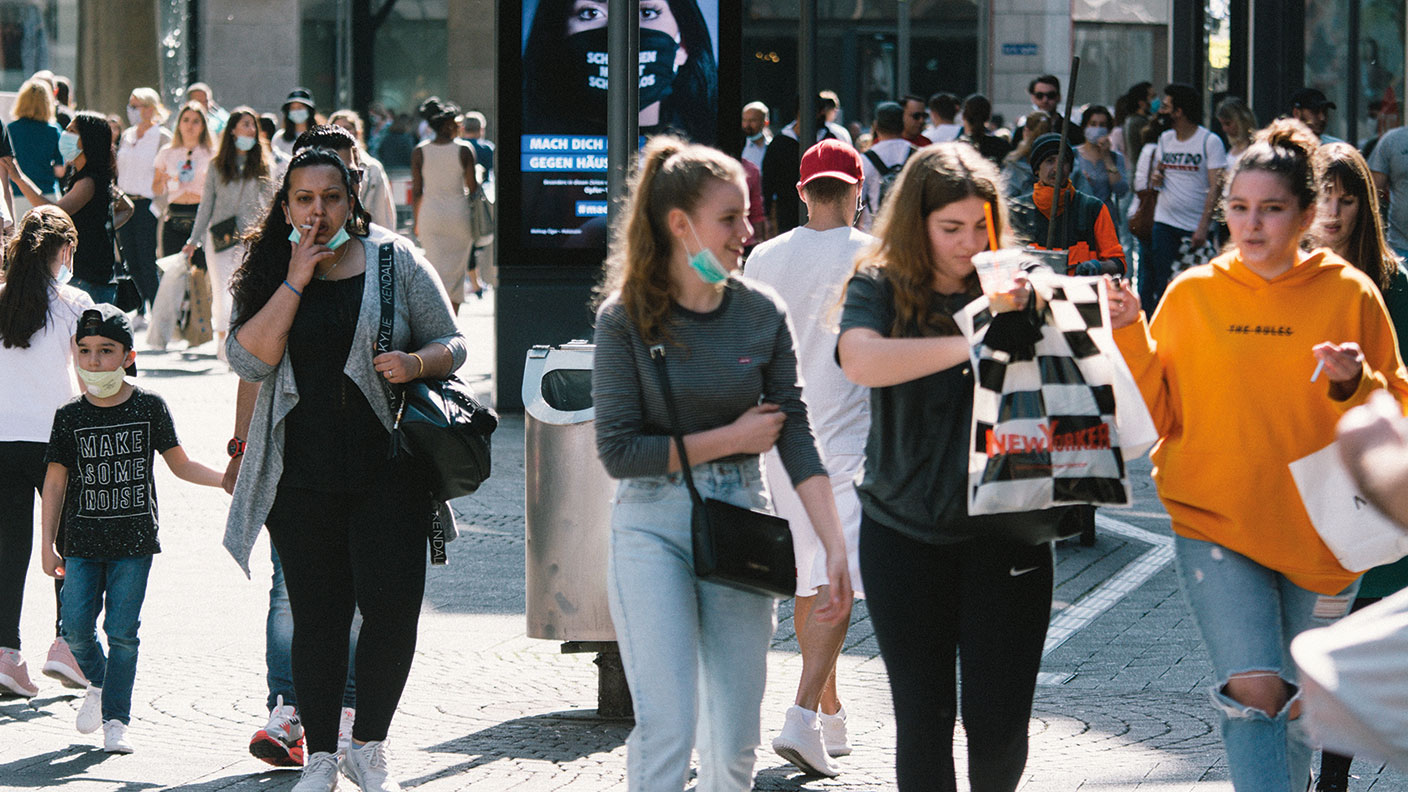Stockmarkets stumble – but the bulls charge on
Global markets registered their worst day in months last week, but US retail investors continue to pile in.

Get the latest financial news, insights and expert analysis from our award-winning MoneyWeek team, to help you understand what really matters when it comes to your finances.
You are now subscribed
Your newsletter sign-up was successful
Want to add more newsletters?

Twice daily
MoneyWeek
Get the latest financial news, insights and expert analysis from our award-winning MoneyWeek team, to help you understand what really matters when it comes to your finances.

Four times a week
Look After My Bills
Sign up to our free money-saving newsletter, filled with the latest news and expert advice to help you find the best tips and deals for managing your bills. Start saving today!
Stocks can go down as well up, says The New York Times. Markets have been rallying almost continuously since the March bottom, but last week brought a reminder that gains can quickly turn into losses. Global markets registered their worst day in months on Thursday, with America’s S&P 500 tumbling 5.9% and the Dow Jones index down 7%. The FTSE 100 shed almost 4%.
Signs of a revival in Covid-19 are tempering the “exuberance”, says Randall Forsyth for Barron’s. Case numbers are rising in 20 US states and there are signs of a new outbreak in China. Even this relentlessly optimistic rally would be unlikely to survive a second wave.
Robinhood to the rescue
Markets staged a patchy recovery during the first part of this week, but the pullback has given succour to those who think that we are in a “bear market rally”: a period of optimism within a structural downtrend.
MoneyWeek
Subscribe to MoneyWeek today and get your first six magazine issues absolutely FREE

Sign up to Money Morning
Don't miss the latest investment and personal finances news, market analysis, plus money-saving tips with our free twice-daily newsletter
Don't miss the latest investment and personal finances news, market analysis, plus money-saving tips with our free twice-daily newsletter
A recent Bank of America survey of market professionals found that 53% think this is a bear market rally and a net 78% believe stocks are overvalued, a record number, says John Melloy on CNBC.
That is more than said the same thing on the eve of the dotcom bubble bursting. The current optimism is based on talk of a “V-shaped” recovery, yet just 18% expect such a rapid snapback in activity.
Why are markets surging when so many professionals are wary? Many point to trading app Robinhood, which is enabling casual US investors to take a punt on stocks, says John Authers on Bloomberg. They are usually derided as the “dumb money”, but research by investment banks shows that they have done a better job than the professionals at picking stocks of late. Perhaps for the first time since the late 1990s retail money is having a real impact on market movements.
The trouble is that retail investors have also been enthusiastically buying up struggling firms with terrible balance sheets because they look cheap. My inner “curmudgeon [says] this will end in tears”.
The rally continues
Hopes of a V-shaped recovery endure. Incoming data certainly points to one for now, as Chetan Ahya of Morgan Stanley points out. Driving indices show that people in the US and Germany are moving around at pre-virus levels again. The latest round of survey data show improvements in May across major economies, suggesting that April was the global bottom. This week the US reported a record jump in retail sales.
The recovery will be lengthy, but a gradually improving economy is likely to keep stock prices buoyant, says Oliver Jones of Capital Economics. The surge of monetary and fiscal support is proving a powerful tailwind for asset prices. Some stockmarkets also look pricier than they really are: valuations are based on bombed-out 2020 earnings forecasts, but earnings next year and thereafter are likely to be much better. That should mean that the recovery in risk assets has further to run.
Get the latest financial news, insights and expert analysis from our award-winning MoneyWeek team, to help you understand what really matters when it comes to your finances.
Alex is an investment writer who has been contributing to MoneyWeek since 2015. He has been the magazine’s markets editor since 2019.
Alex has a passion for demystifying the often arcane world of finance for a general readership. While financial media tends to focus compulsively on the latest trend, the best opportunities can lie forgotten elsewhere.
He is especially interested in European equities – where his fluent French helps him to cover the continent’s largest bourse – and emerging markets, where his experience living in Beijing, and conversational Chinese, prove useful.
Hailing from Leeds, he studied Philosophy, Politics and Economics at the University of Oxford. He also holds a Master of Public Health from the University of Manchester.
-
 Early signs of the AI apocalypse?
Early signs of the AI apocalypse?Uncertainty is rife as investors question what the impact of AI will be.
-
 Reach for the stars to boost Britain's space industry
Reach for the stars to boost Britain's space industryopinion We can’t afford to neglect Britain's space industry. Unfortunately, the government is taking completely the wrong approach, says Matthew Lynn